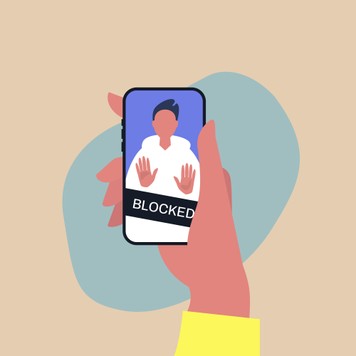Facebook Removes Video of Trump Interview with His Daughter-in-Law
A video of an interview with former President Donald Trump was removed from the Facebook account of his daughter-in-law Lara Trump.
Facebook Removed Former President Trump’s Interview as Part of Ban from Platform
Lara Trump recently posted a video of an interview she conducted with former President Trump. However, Facebook swiftly removed the video and subsequently contacted various Trump officials and persons connected to the former president to advise that any content posted on Facebook or Instagram “in the voice of President Trump” would be removed, with accounts posting such content potentially subject to additional limitations imposed by the service. Facebook cited former President Trump’s indefinite suspension from the Facebook and Instagram platforms as grounds for removing the interview from Lara Trump’s profile, with an email from the company stating that “content posted on Facebook and Instagram in the voice of President Trump is not currently allowed on our platform.”
President Trump was indefinitely banned from Facebook’s platforms following the deadly riot at the U.S. Capitol on January 6, 2021, involving supporters of the former president who had come from a rally President Trump was holding at the White House as Congress began the certification of Electoral College results following the 2020 election.
Facebook has referred President Trump to the company’s independent oversight board to determine whether and when the former president’s suspension should be lifted. Twitter, which also deactivated President Trump’s account after the Capitol riot, has said that Trump’s ban from the platform is permanent
Is a Social Media Ban a Violation of First Amendment Rights?
In recent months, particularly following January 6th, social media platforms have moved to suspend or remove various users’ accounts on grounds of inciting or promoting violence or criminal activity, with many of the affected accounts belonging to supporters of former President Trump. These actions have led to criticism that social media bans constitute a violation of users’ First Amendment rights. However, the First Amendment does not come into play regarding social media platforms. The First Amendment only protects citizens from actions by the government to limit or censor speech. But social media companies are private actors, and people’s use of social media platforms are governed by the Terms of Use they accept when they sign up for an account or profile. These agreements usually give social media companies broad discretion to modify or delete posts or to suspend or ban users from the platform.
Liability for Social Media Platforms That Censor Political Speech
Traditionally, Section 230 of the Communications Act has offered internet companies, such as social media platforms, immunity from liability, specifically stating that no provider of interactive computer services would be treated as the publisher or speaker of information or content provided by another user or content provider. However, as part of the criticism levied against Facebook and Twitter after they suspended and banned former President Trump from their platforms, some legislators have begun to openly wonder whether Section 230 liability should be modified for social companies, particularly for those that do not take a “politically neutral” approach to mediating content on their platforms.
Contact a Philadelphia Civil Rights Attorney for a Consultation About First Amendment Rights in Pennsylvania Today
The experienced Pennsylvania civil rights lawyers at Marrone Law Firm, LLC understand the nuances of Pennsylvania and federal constitutional rights, so we can help you protect your interests. Call us anytime at (866) 732-6700 or fill out the online contact form to schedule a confidential consultation. We have an office conveniently located at 200 S. Broad St., Suite 400, Philadelphia, PA 19102.
The articles on this blog are for informative purposes only and are no substitute for legal advice or an attorney-client relationship. If you are seeking legal advice, please contact our law firm directly.
